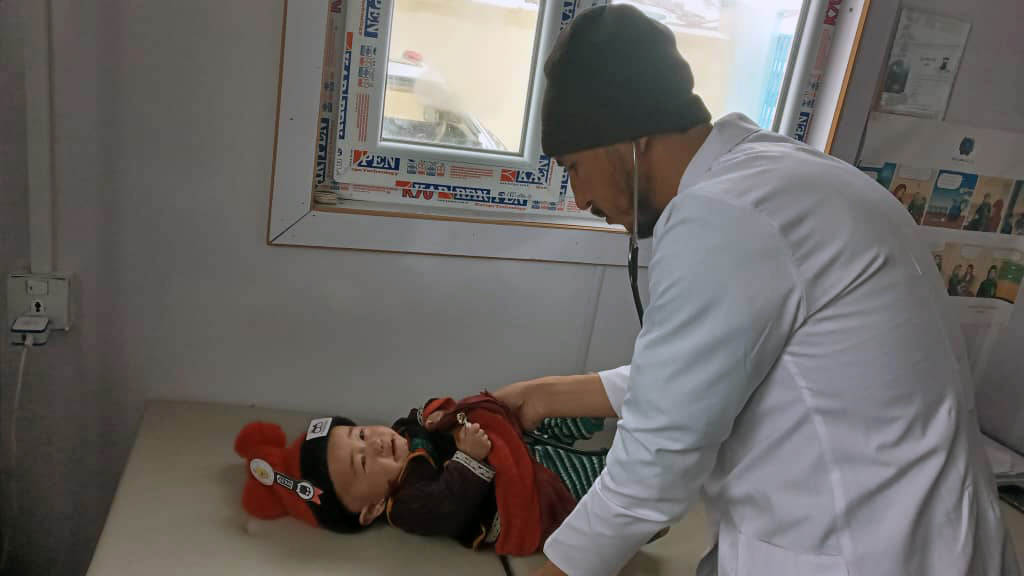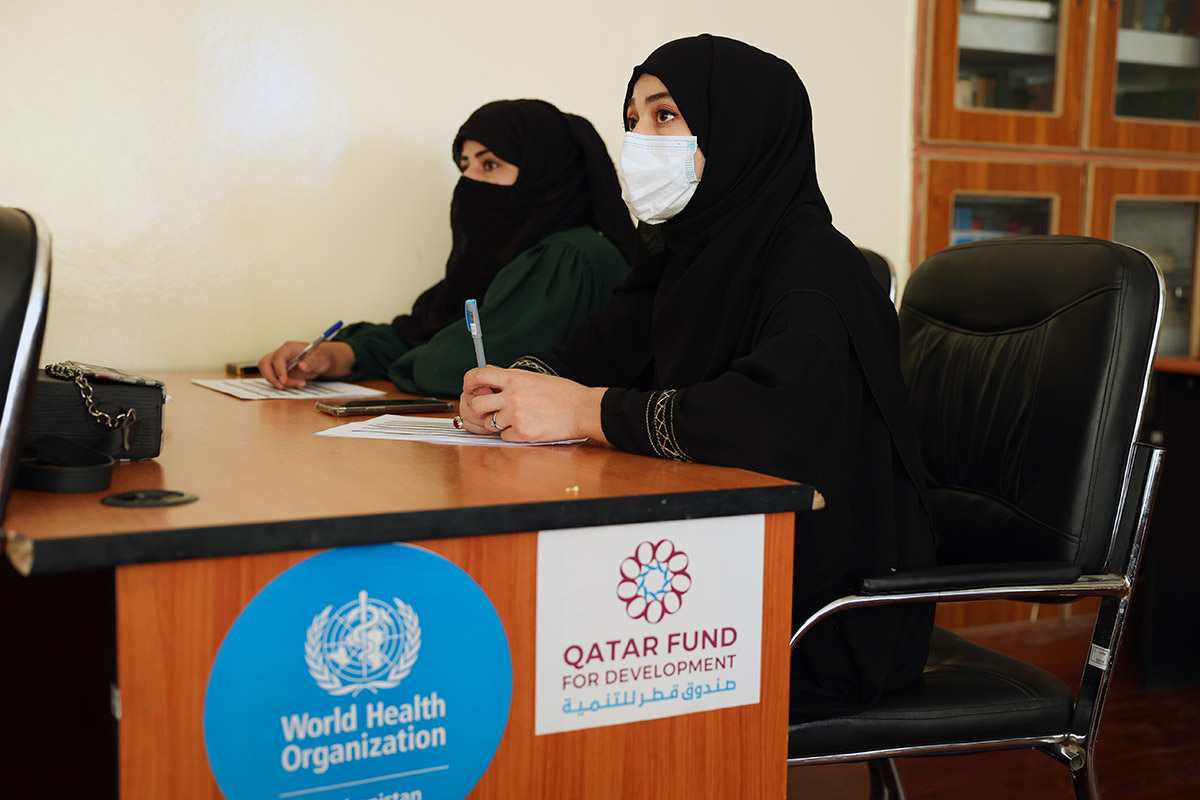 Balghali Bala and Payeen Primary Health Care Centre in Samangan province, Afghanistan. Photo credit: WHO
Balghali Bala and Payeen Primary Health Care Centre in Samangan province, Afghanistan. Photo credit: WHO
26 June 2024, Kabul, Afghanistan – Over 700 000 people have benefited from medical support provided by the World Health Organization (WHO) in Afghanistan to 113 health facilities strategically located in hard-to-reach areas across 15 Afghan provinces. The support comprised 330 primary health care kits, which were distributed to the target facilities as part of a major initiative to improve health care access in underserved areas of Afghanistan.
Using the essential medicines and medical supplies provided, the 44 basic primary health care centres (PHCCs) and 69 sub-PHCCs, serving 5 targeted regions, have so far supported over 737 000 beneficiaries. This includes a significant number of people reliant on regular essential medicines. Of the total beneficiaries to date, about 516 000 were female and over 221 100 were male, with 51% of beneficiaries aged under 24 years.
The provision of the kits formed part of a year-long project that WHO launched in April 2023, supported by the Qatar Fund for Development (QFFD). The project also involved 3 focused capacity-building programmes, targeting 402 health professionals (251 males, 151 females), through 14 training workshops run between April 2023 and April 2024.
 Stock management training. Photo credit: WHO/Z. Safari
Stock management training. Photo credit: WHO/Z. Safari
The workshops aimed to address essential gaps in knowledge and skills in critical areas such as the rational use of drugs; stock management; and adherence to the national standard treatment guideline. Taking part in these sessions were selected health workers from 10 targeted provinces: Baghlan, Farah, Ghor, Helmand, Nuristan, Paktika, Samangan, Takhar, Wardak and Zabul.
“The collaborative efforts of WHO and its partners, supported by QFFD, have significantly improved health service delivery in Afghanistan’s underserved areas,” said Dr Jamshed Tanoli, acting WHO Representative to Afghanistan. “Our main focus is to enhance access to essential and life-saving medicines, as well as strengthen the capacity of health professionals to provide quality care in areas with vulnerable communities.”
WHO extends its gratitude to QFFD for its generous contribution, which has enabled the provision of sufficient medicines and medical supplies to numerous health facilities in remote areas. This support has empowered health professionals to deliver quality health services to millions of underserved people across many parts of the country.


